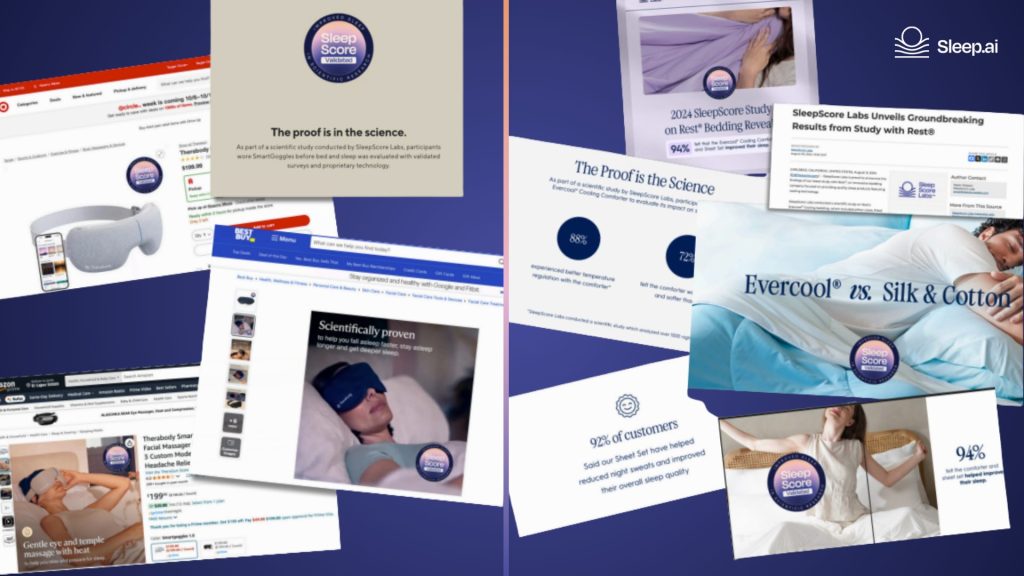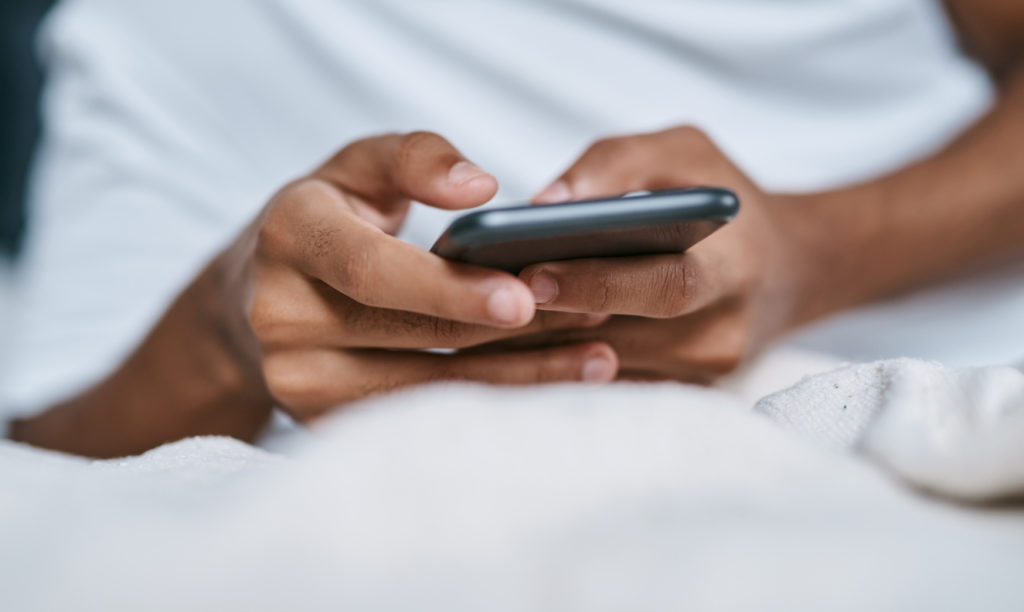
Blog
Validation Marketing: Why Your Study Should Be Your Strongest Sales Asset
When brands invest in scientific validation, they often focus on the study itself: the methodology, the metrics, the seal. But…
Introducing SleepScore
We deliver accurate data, actionable insights, personalized coaching and proven outcomes your customers need.
Sleep Insights
Last Published on 7th September 2021 by SleepScore Labs

What was the last thing you did before falling asleep last night? If you’re like one of the 61% of Americans that fall asleep checking their phones, you may have a last fleeting image of sleepily looking at your smartphone before drifting off. But how does this seemingly trivial habit affect your sleep quality? Do you need to limit your smartphone use before bedtime? If so, how?
Let’s find out.
Smart devices and social media apps keep us connected with the world. But sometimes, we get so attached to them that it can become difficult to disconnect from them at appropriate times, like bedtime.
Some of us may not realize that using a smartphone at night can sabotage healthy sleep. And if you already struggle to get the required seven or more hours of sleep each night, adding bright screen time to your bedtime routine may not only make your efforts futile but contribute to more sleep issues.
Here are three ways using your phone at night may disrupt your sleep quality.
Your circadian rhythm is your internal body clock that regulates your sleep-wake cycle and coordinates other physical, mental, and behavioral patterns that follow a 24-hour cycle (like eating habits, immune function, digestion, mood, cognition, daytime energy, hormone release). It tells your body when it should do what it should do. When it’s out of balance, many of the internal processes it coordinates start to fall apart.
But what may put your body clock off balance? Studies show that the blue light from electronic devices, including your smartphone, may influence and disrupt the circadian rhythm. Nighttime exposure suppresses melatonin (the hormone that, in response to sundown, tells our body to wind down for sleep), making it difficult to fall asleep. This, in turn, affects the timing of our sleep-wake patterns and can even negatively impact daytime energy, potentially throwing you into a cycle of daytime sleepiness and nighttime alertness.
There’s more: according to a 2014 study, blue-light exposure stimulates brain activity and alertness, which makes initiating sleep even more difficult.
If you’ve ever falsely promised yourself just 10 more minutes of Instagram scrolling before going to bed, more often than not that 10 minutes will turn into an hour or more.
According to a 2019 study published in the Journal of family medicine and primary care, adults who use their smart devices during bedtime have an increased chance of being poor sleepers. This habit generally affects their sleep quality, productivity, and health. Similarly, studies show an association between insufficient sleep and poor daytime functioning, moodiness, dehydration, impaired cognition, weakened immunity, and heart-related diseases.
The evening should be seen as the time to prepare your mind and body to wind down for restorative sleep. But, social media can make this close to impossible because they are designed to keep you engaged.
Whether you’re not reacting with excitement or fury to a friend’s Facebook post or laughing at a meme that came across your feed, your brain is working like it’s still daytime and not getting the relaxation it needs to send you to dreamland.
Social media content triggers a wide range of emotions that may stimulate your brain, making it difficult to fall asleep. This unavoidably means you’ll likely procrastinate sleep for later and miss out on good sleep for that night.
Many people spend most of their evenings using social media, most likely because it’s the only time they get a real break from work and other adulthood responsibilities.
Statista tells us that 61% of adults use their phones at bedtime. Interestingly, a study on the prevalence of smartphone use at bedtime among medical staff found that more than 98% of participants owned a smartphone, and 92.4% used it at bedtime. Similarly, a 2018 study on 855 hospital employees and university students found that 70% of participants scroll on social media while in bed, with about 15% spending at least an hour on it.
So, if you’re unable to resist the pull to check social media one last time before bed, know that there are simple and effective ways to build healthy nighttime habits and reduce social media use before bed.
Wondering how to break your nighttime attachment to social media and replace it with better sleep habits? Consider this your guide.
Using your smart devices at night may seem like a harmless habit, but its impact on sleep quality and overall well-being cannot be overlooked. Having proper sleep hygiene by employing some of the ideas listed above may help you ditch social media, relax more effectively at night, and put you on the path to a great night’s sleep. So, the next time someone asks you if you had a good night’s rest, you wouldn’t hesitate to say ‘Yes!’.